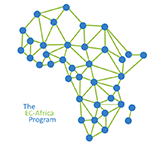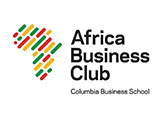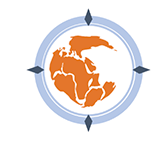The Africa Business Initiative brings together a robust menu of opportunities for students and business leaders:
Entrepeneurship and Competitiveness in Africa
 Modeled after our long-running Latin American program, Entrepreneurship and Competitiveness in Africa equips entrepreneurs from small and midsized companies with the skills, tools, and network to professionalize and grow their businesses in today's global environment.
Modeled after our long-running Latin American program, Entrepreneurship and Competitiveness in Africa equips entrepreneurs from small and midsized companies with the skills, tools, and network to professionalize and grow their businesses in today's global environment.
Travel Programs

Study tours: Designed to enhance the classroom curriculum, study tours offer students an intense, firsthand experience of the business culture of a chosen country or region to lay the groundwork for future international internships and careers. During the trips, students meet with leading executives and government officials while visiting businesses, factories, and cultural sites.
Study tours are organized by student teams. Tour organizers arrange information sessions and send out e-mails through student notices regarding trip details and deadlines. The Chazen Institute provides guidance and logistical support throughout the tour planning.
Previous tours have traveled to Rwanda, Tanzania, South Africa and Zimbabwe.
Global Immersion Program (GIP) classes: GIPs bridge classroom lessons and business practices in another country. These 3-credit classes meet for half a term in New York prior to a one-week visit to the country of focus. Recent GIPs traveled to Ghana, Egypt, and Tunisia.
During the immersion week, students meet with business executives and government officials while working on team projects. Upon returning from the travel portion of the class, students have at least one wrap-up meeting at Columbia Business School.
Open Startup Tunisia

Open Startup Tunisia is a competition in the heart of a pre-incubation program partnership with Columbia Engineering and Business School to support Tunisian youth eager to open up to the world and thrive. It brings together students from different disciplines, across universities and regions and boosts their innovation and team work skills to solve global problems.
Africa Alumni Connect
 The Admissions and Alumni offices of Columbia Business School run a special network to connect alumni with current and prospective African students, in partnership with two student clubs: the Africa Business Club and the Black Business Students Association.
The Admissions and Alumni offices of Columbia Business School run a special network to connect alumni with current and prospective African students, in partnership with two student clubs: the Africa Business Club and the Black Business Students Association.
Faculty, Research, and Teaching
 Columbia Business School is home to some of the world's leading researchers on Africa. In addition, the continent is deeply embedded in coursework and curricula.
Columbia Business School is home to some of the world's leading researchers on Africa. In addition, the continent is deeply embedded in coursework and curricula.
Global Centers
 Columbia Global Centers aim to build the necessary bridges to enable partnerships, academics, research, and educational experiences that support the Columbia community and regional stakeholders as they tackle today's complex global challenges.
Columbia Global Centers aim to build the necessary bridges to enable partnerships, academics, research, and educational experiences that support the Columbia community and regional stakeholders as they tackle today's complex global challenges.
Executive MBA Program
 The Executive MBA is designed and delivered in collaboration with Columbia Business School. The curriculum delves deeply into leadership, strategy, management, and innovation through modern and hybrid pedagogical methods such as flipped classrooms, case studies drawn from the African context, and real-life simulations of the boardroom, the trading floor, the start-up, and the negotiation table. The program is tailored to meet the needs of African professionals and decision makers.
The Executive MBA is designed and delivered in collaboration with Columbia Business School. The curriculum delves deeply into leadership, strategy, management, and innovation through modern and hybrid pedagogical methods such as flipped classrooms, case studies drawn from the African context, and real-life simulations of the boardroom, the trading floor, the start-up, and the negotiation table. The program is tailored to meet the needs of African professionals and decision makers.
Africa Business Club
 The Africa Business Club (ABC) works to advance social and economic issues related to Africa and promote an understanding of Africa at Columbia Business School. ABC not only shares cultural and international perspectives from Africa on campus, but also builds community through education and various forms of engagement and entertainment. The ABC also co-hosts the Columbia Africa Conference with other Columbia University graduate schools such as the School of International and Public Affairs and the School of Engineering.
The Africa Business Club (ABC) works to advance social and economic issues related to Africa and promote an understanding of Africa at Columbia Business School. ABC not only shares cultural and international perspectives from Africa on campus, but also builds community through education and various forms of engagement and entertainment. The ABC also co-hosts the Columbia Africa Conference with other Columbia University graduate schools such as the School of International and Public Affairs and the School of Engineering.
Pangea Advisors
 Pangea Advisors is Columbia Business School’s pro bono, international consulting organization. It aims to improve lives in the developing world by helping nonprofit and for-profit social enterprises address challenges. Each semester, it matches teams of students with clients spanning countries and industries. The team, supported by a faculty or professional mentor, completes a consulting assignment, advising the clients on innovative and impactful practices.
Pangea Advisors is Columbia Business School’s pro bono, international consulting organization. It aims to improve lives in the developing world by helping nonprofit and for-profit social enterprises address challenges. Each semester, it matches teams of students with clients spanning countries and industries. The team, supported by a faculty or professional mentor, completes a consulting assignment, advising the clients on innovative and impactful practices.